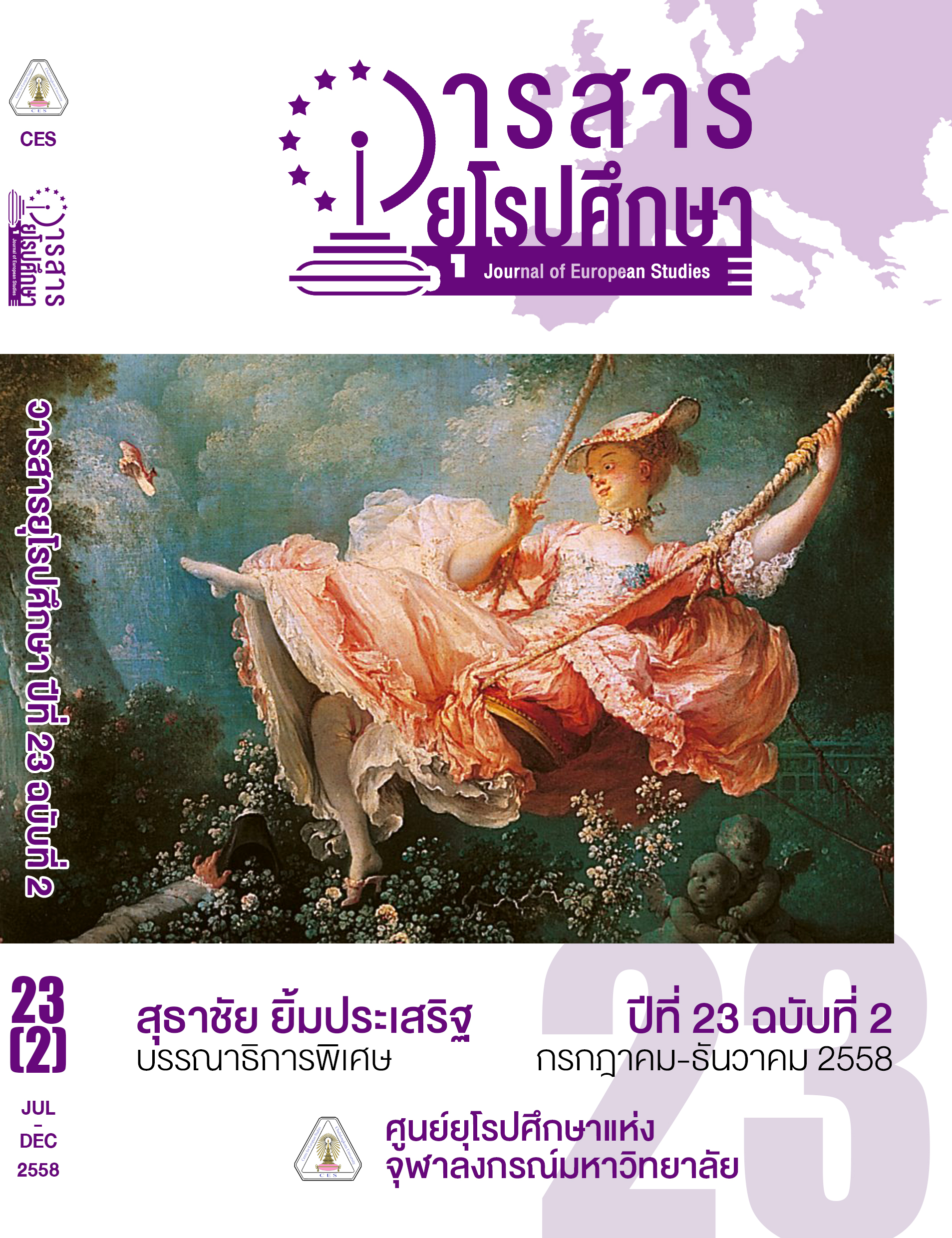หญิงเหล็กบนเวทีละคร: ภาพแทนความเกลียดชังในการนำเสนอ นางมาร์กาเร็ต แท็ตเชอร์ ในบทละครอังกฤษร่วมสมัย
บทคัดย่อ
To her supporters Margaret Thatcher is admired as Britain’s first female Prime Minister who revitalized the nation’s economy, curbed the power of the trade unions and re-established Great Britain as a world power. To her critics, her term as Prime Minister (1979-1990) earned her their ire for the destruction of what they saw as the post war gains of the British working class as welfare provisions were slashed and social spending was cut in favour of privatization. The term “Thatcherism” has been used in reference to these policies as well as to connote moral absolutism, nationalism, interest in the individual and an uncompromising approach to achieving one’s political goals. A hated figure, Margaret Thatcher has been depicted in countless works of popular culture with strong overtones which go as far as imagining the former Prime Minister’s death and the reactions to the news. Written when Thatcher was at her most powerful, is Caryl Churchill’s Top Girls (1982). Incidentally Thatcher is written into the play and is seen as a parallel of the main character who is celebrating her recent promotion in the “Top Girls” recruiting agency she works for. Top Girls is probably the only play where gender roles are explored with debate over whether feminist principles could survive the exercise of power by women.
This paper seeks to explore the treatment of a renowned figure like Margaret Thatcher in contemporary British drama and with particular focus on Top Girls questions whether the antagonism is a reflection of the ambivalence among feminists who want to see women who have for so long been under represented in positions of significance yet cannot reconcile with her ideology that is equated with war, capitalism and patriarchy that are opposed to their leftist conviction for pacifism, socialism, multiculturalism.



